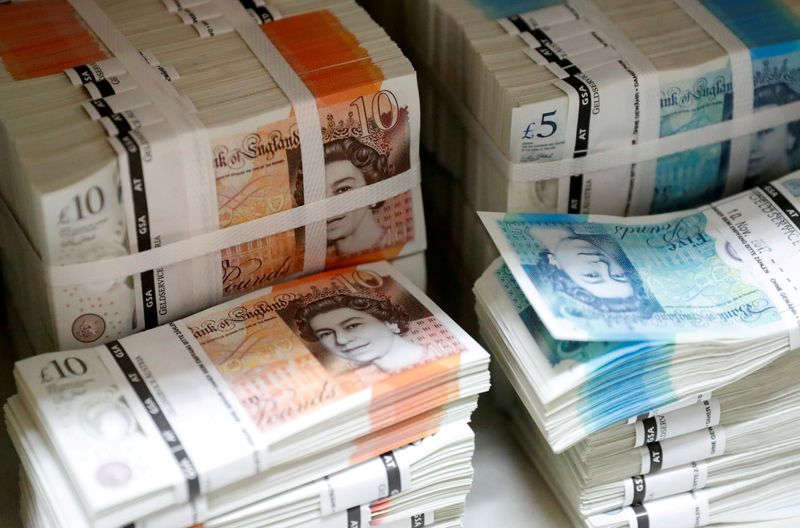By Julien Ponthus
LONDON (Reuters) -Sterling pared deep weekly losses on Friday thanks to an afternoon rebound as sentiment improved across global financial markets, lifting risk currencies and encouraging investors to pull out from the dollar safe haven.
The pound reached its lowest levels of the year earlier this week, weakened by Britain's shortage of truck drivers and a surge in energy prices while a hawkish-sounding Federal Reserve and worries about Chinese growth boosted the greenback.
"It was kind of a perfect storm for sterling," said Kit Juckes, chief foreign exchange strategist at Societe Generale (PA:SOGN), adding that the move was being "partially reversed" this Friday.
While markets have brought forward their expectations for the Bank of England to raise interest rates, the likely incoming tightening of monetary policy has failed to prop up the currency.
"It's been another grim week for the pound, which remained highly sensitive to swings in sentiment and still struggled to cash in on the recent hawkish repricing of Bank of England rate expectations," said Francesco Pesole, a strategist at ING.
At 1430 GMT, the pound was up 0.5% at 85.50 pence against the euro and rising 0.63% versus the dollar at $1.3562.
At this rate, sterling was on course for a weekly loss of about 0.8% against the dollar, a palpable improvement from the 1.5% weekly fall it was heading towards in early morning trading.
The British pound was one of the strongest G10 currencies earlier this year as investors bet the British economy would re-emerge faster from the pandemic thanks to Britain's speedy vaccination programme.
But that narrative has crumbled since, with sterling erasing all of its strong 2021 gains and heading for a yearly loss.
Many British gas stations were still dry on Friday after a chaotic week that saw panic-buying, fights at the pumps and drivers hoarding fuel in water bottles after an acute shortage of truck drivers strained supply chains to breaking point.
Shortages of workers in the wake of Brexit and the COVID pandemic have sown disarray through some sectors of the economy, disrupting deliveries of fuel and medicines and leaving up to 150,000 pigs backed up on farms.
"The current petrol crisis is underlining the effects of Brexit, however much Prime Minister Johnson is trying to make it all sound positive," Commerzbank (DE:CBKG) analyst Antje Praefcke said in a morning note.

"The sceptre of stagflation has not yet reared its ugly head but remains a possibility," she added, also noting soured relations with France due to post-Brexit fishing rights issues.
Data released by the Office for National Statistics showed that while the economy grew by more than previously thought in the April-June period, it was set to slow down as post-lockdown bottlenecks, including the shortage of truck drivers, undermine the recovery.